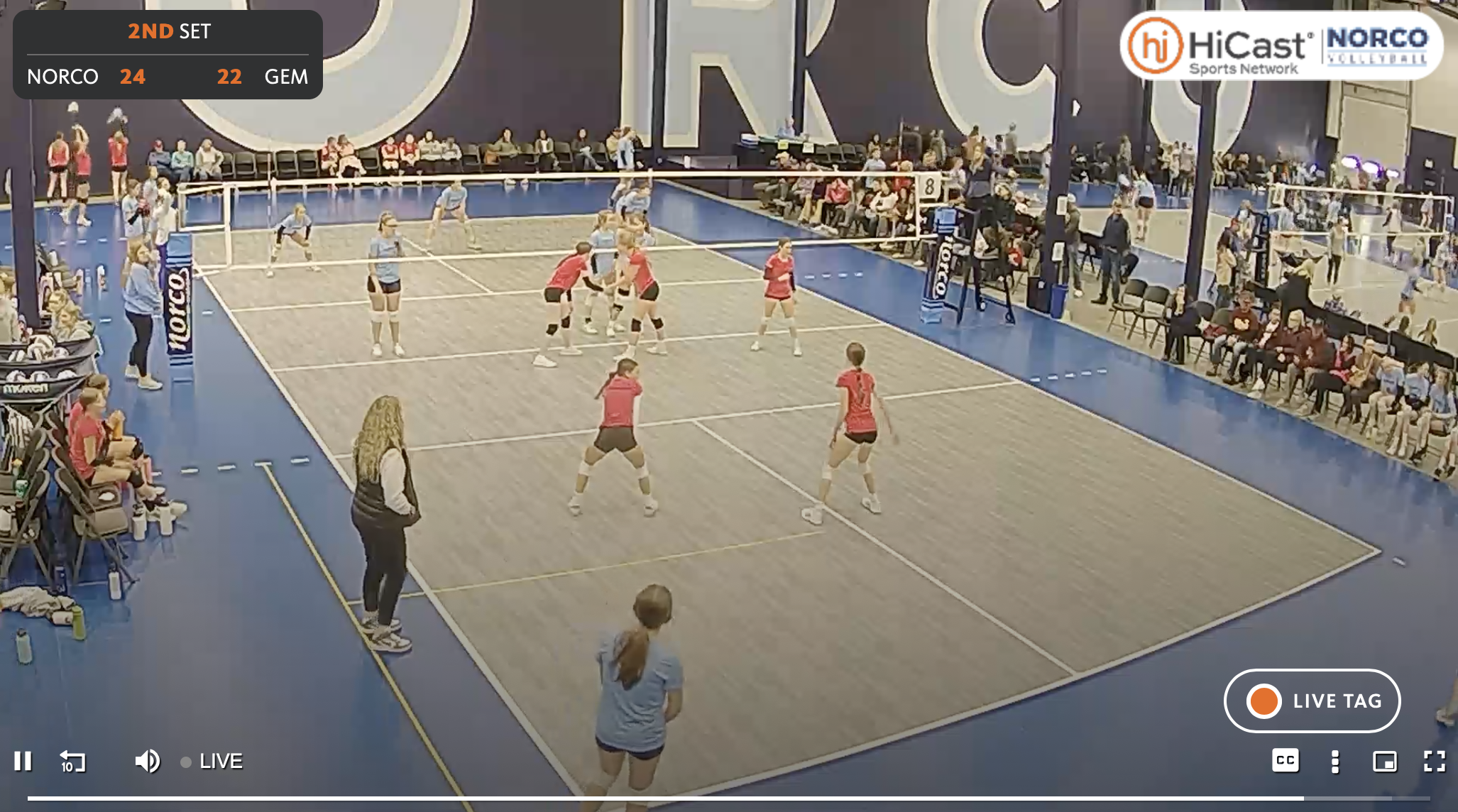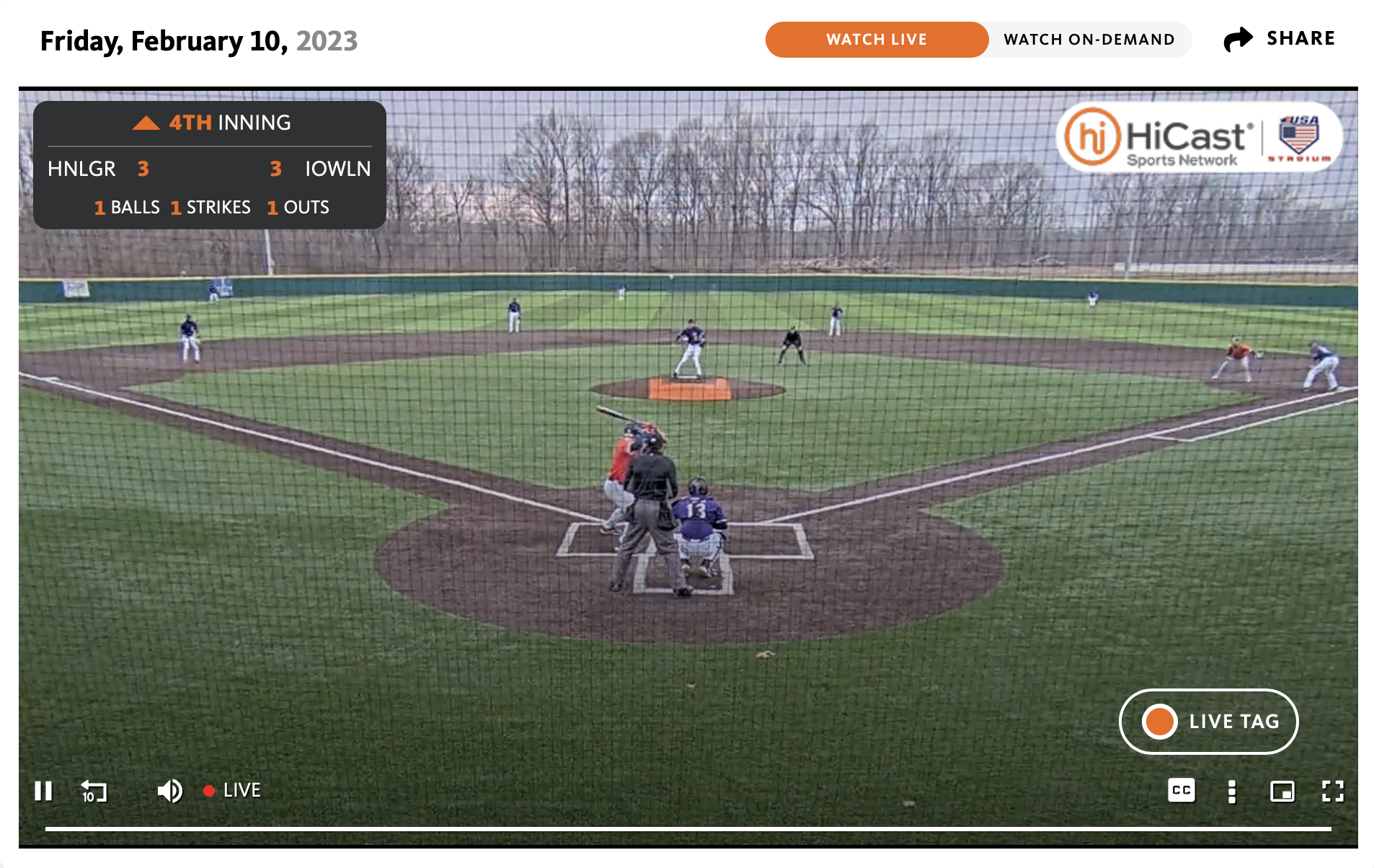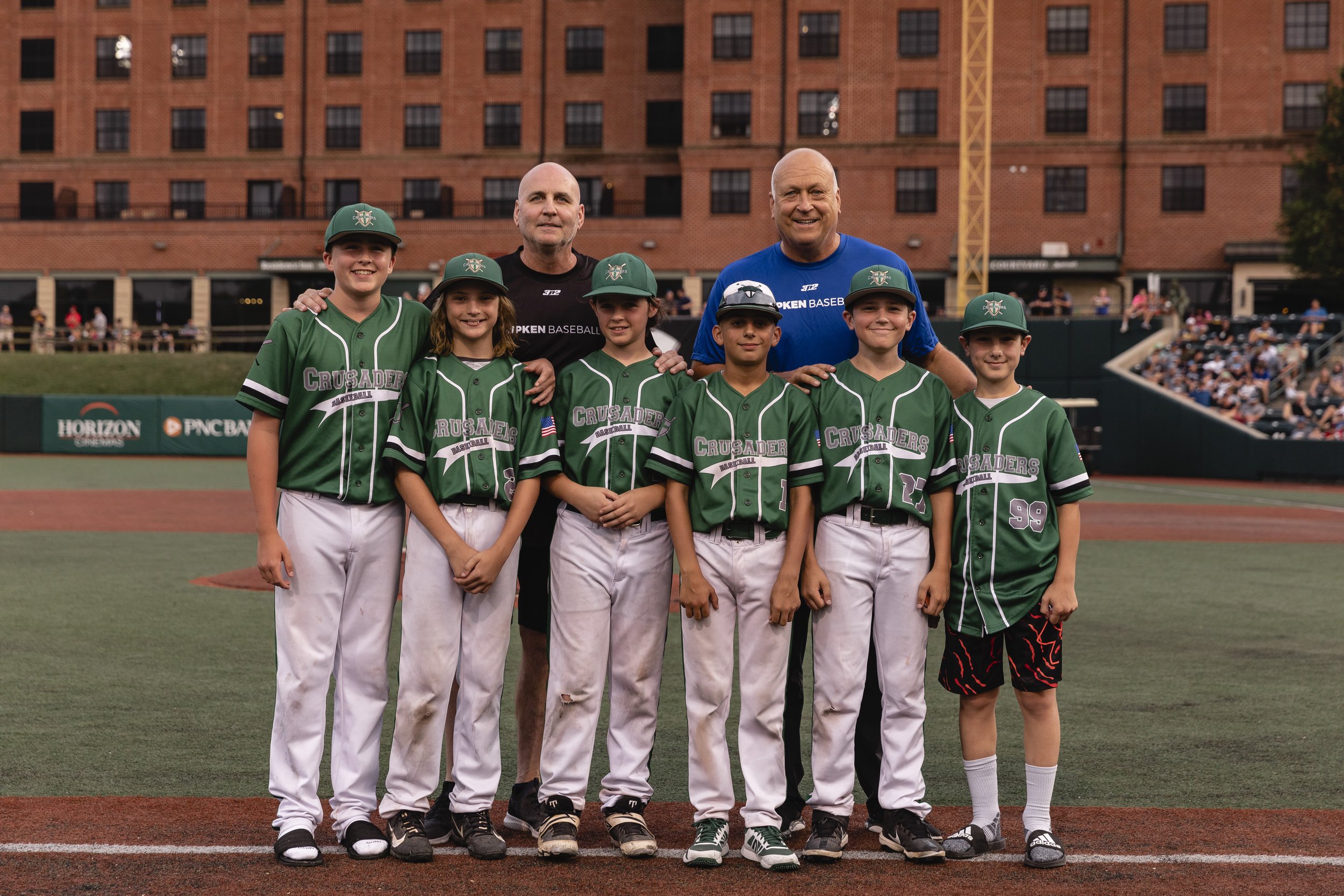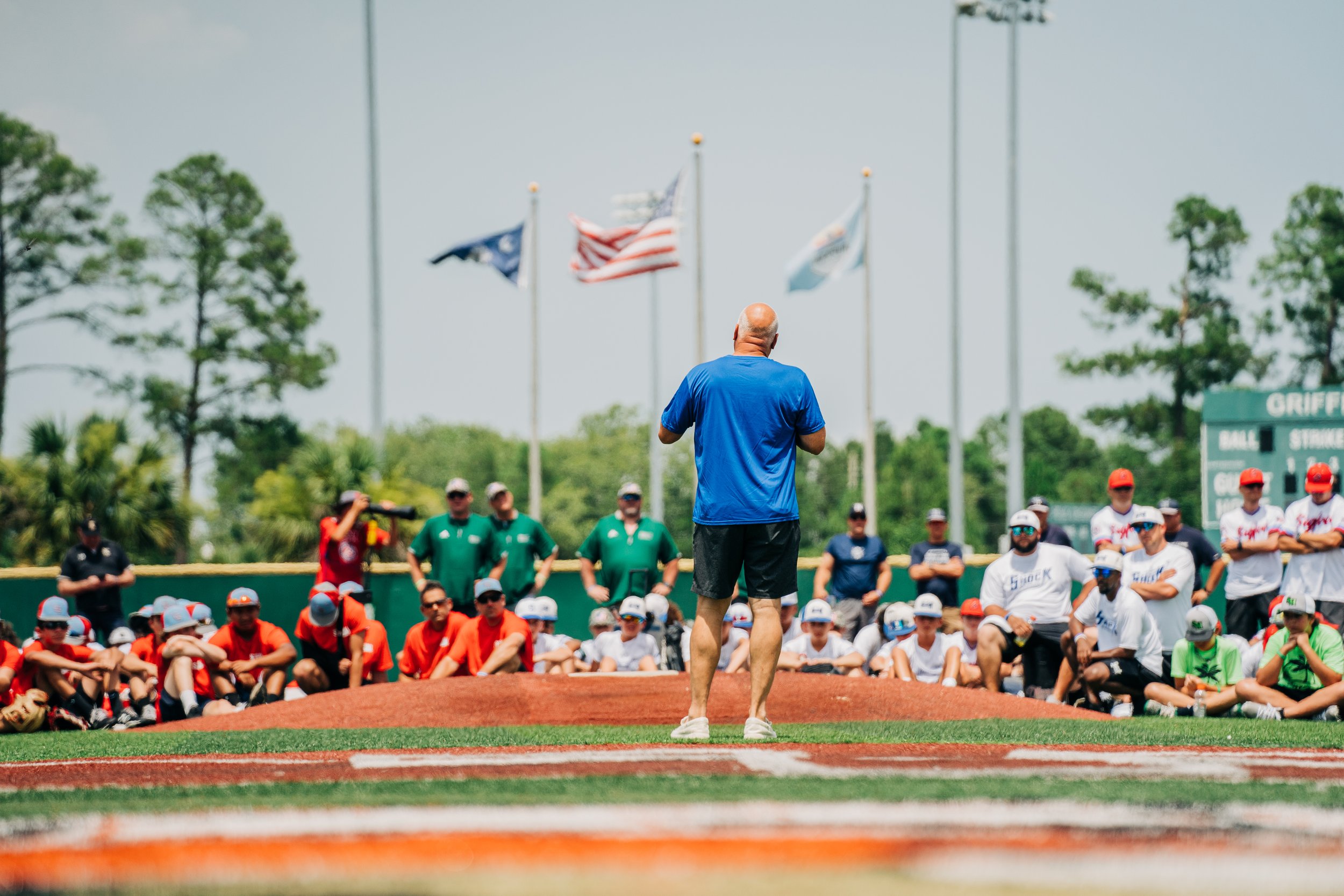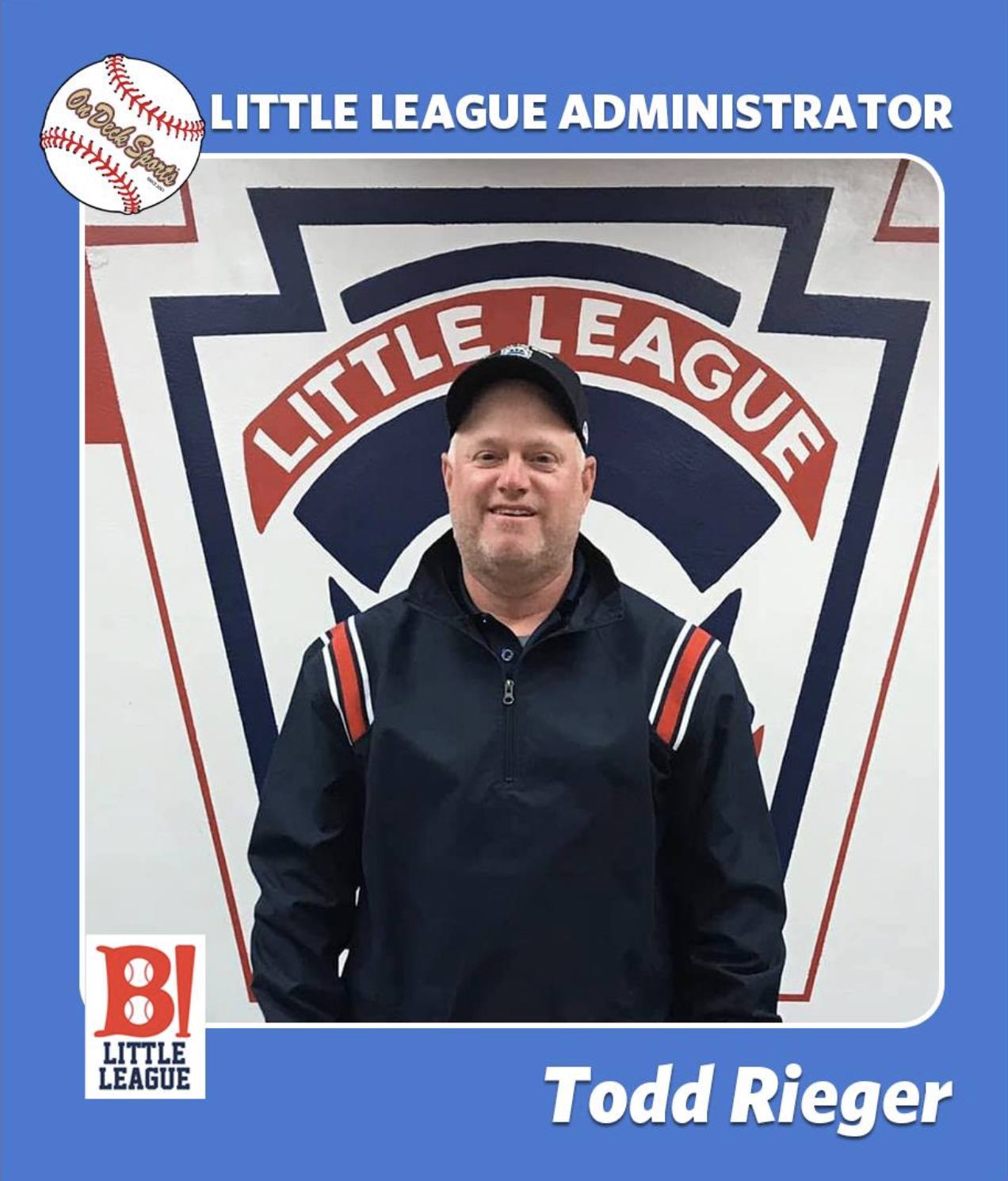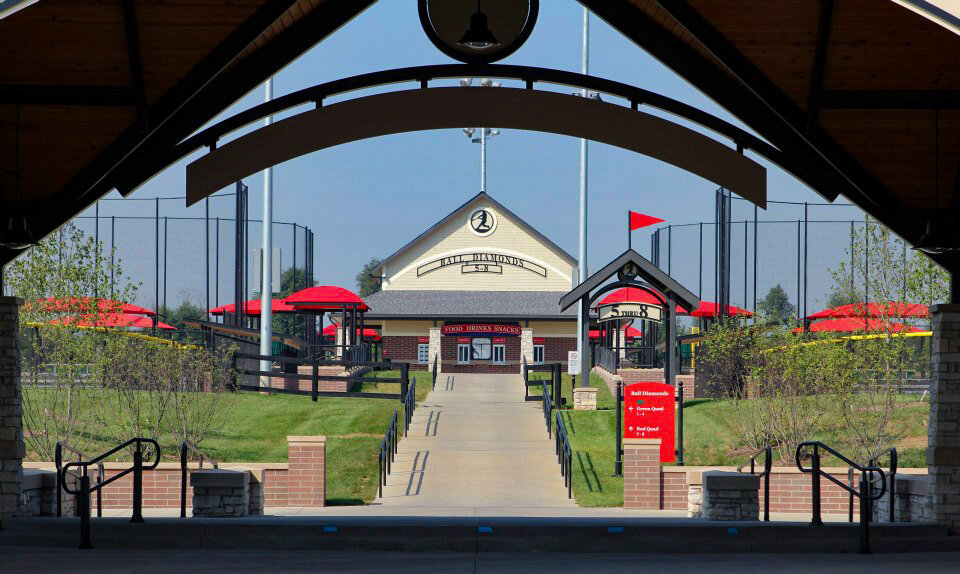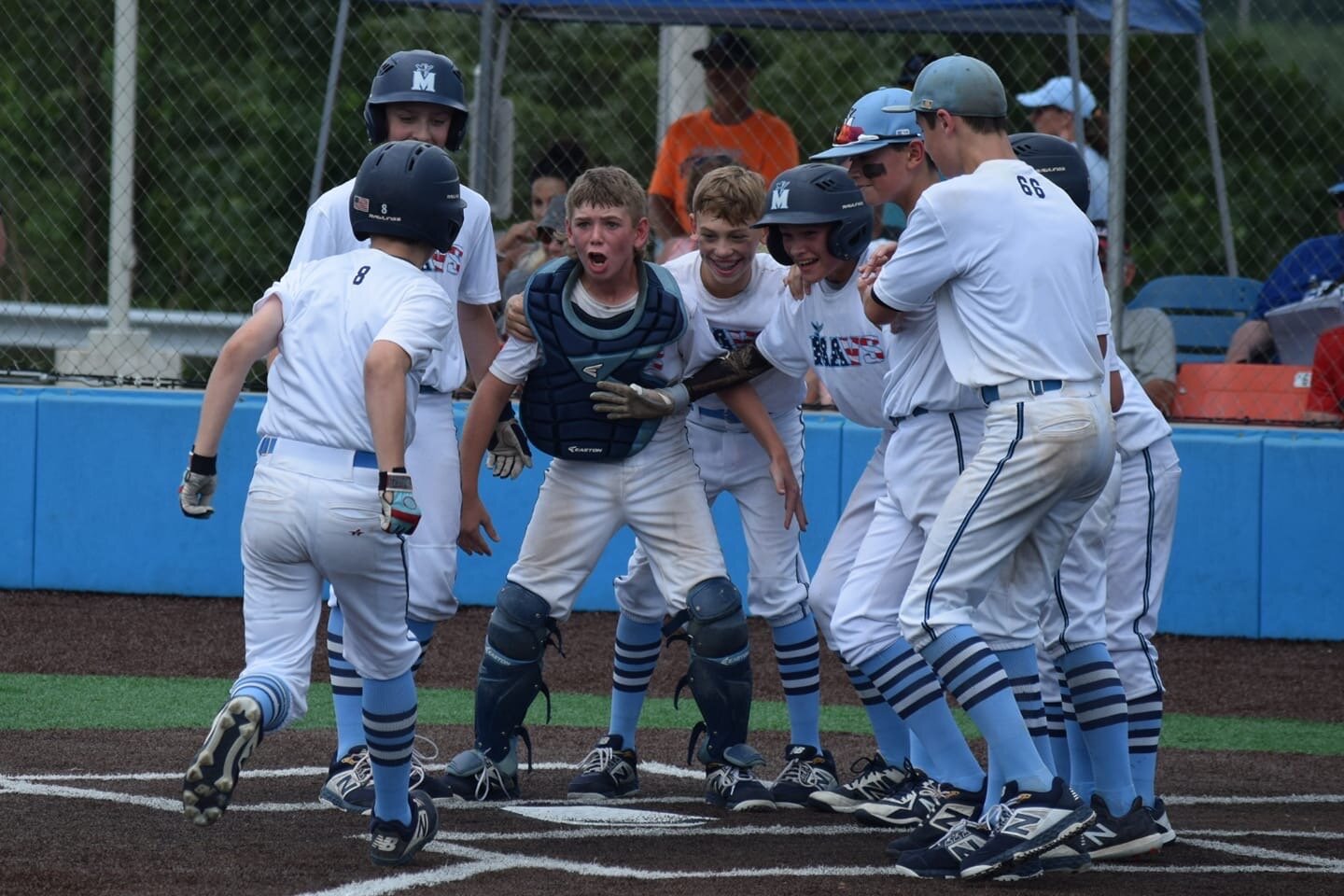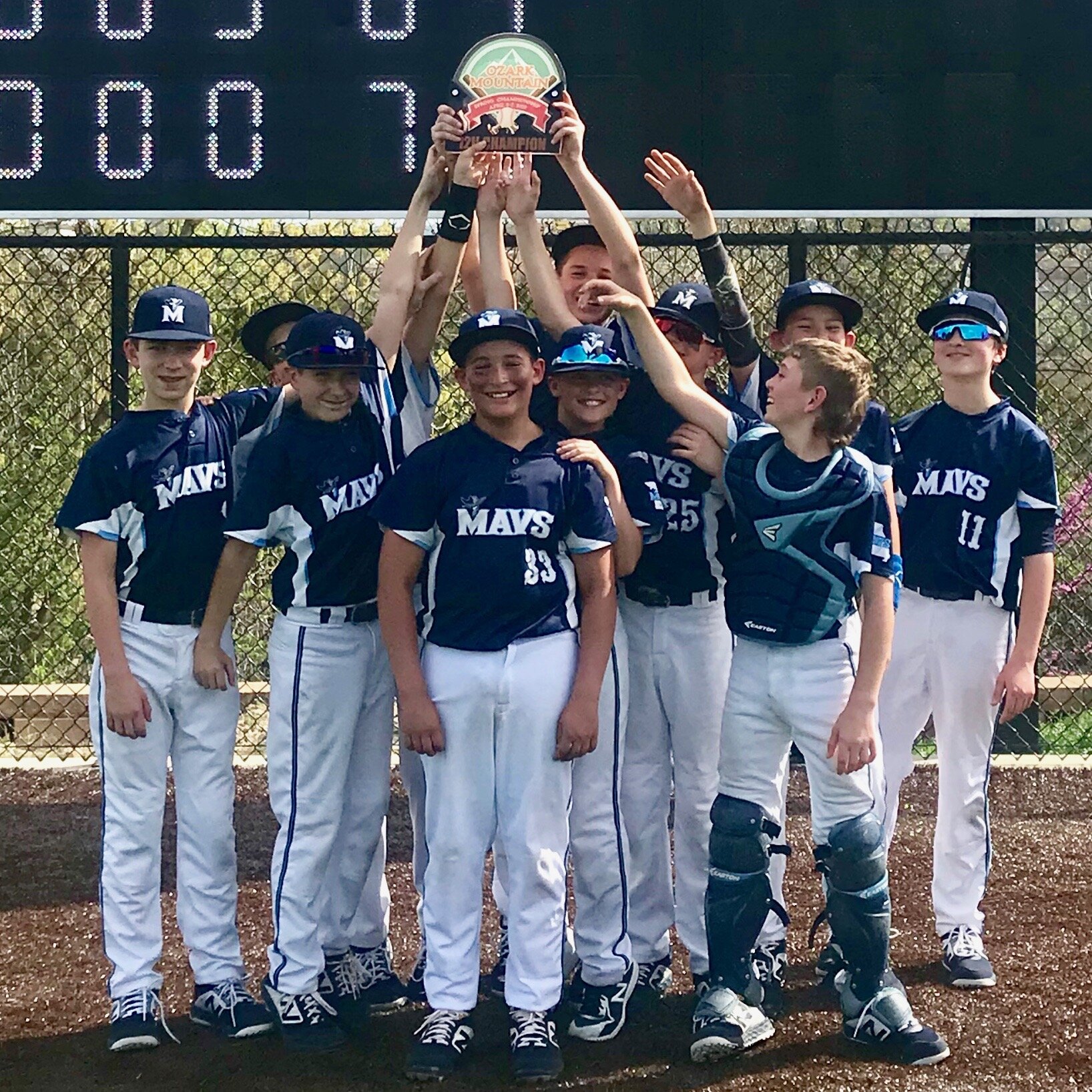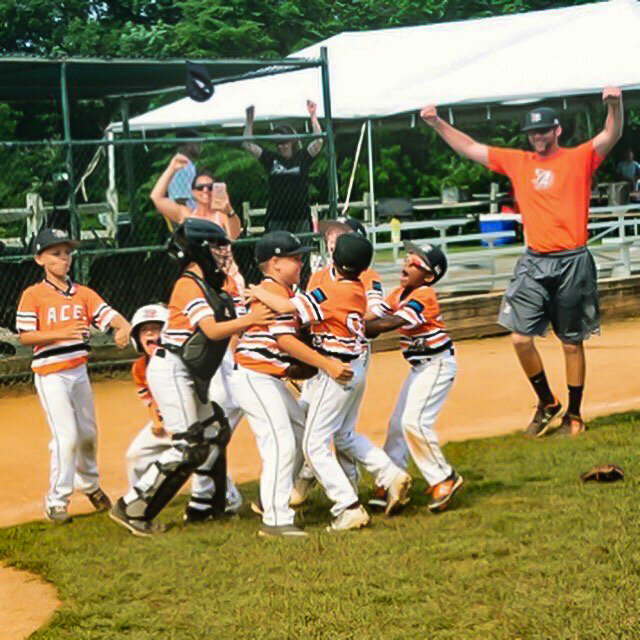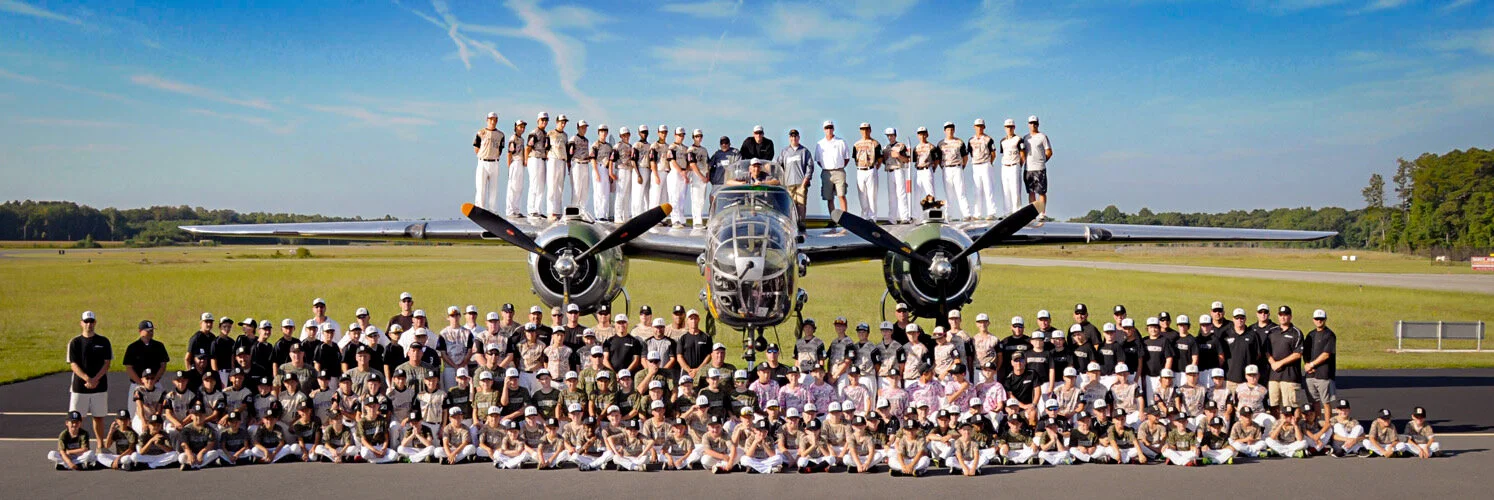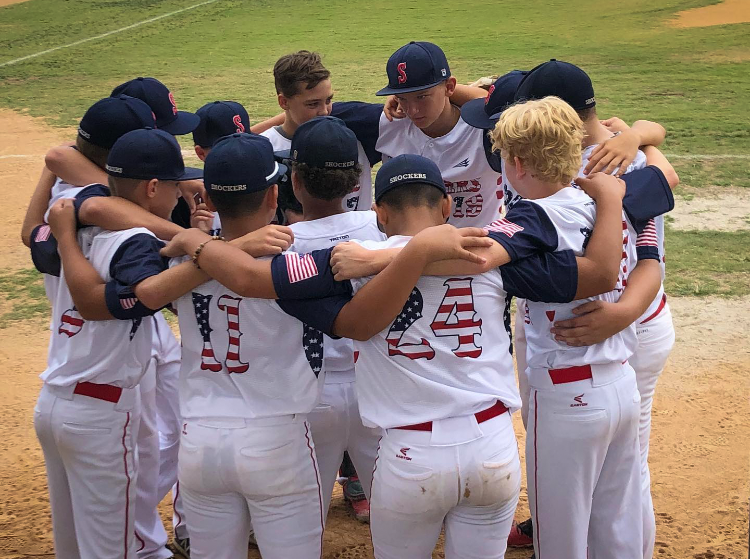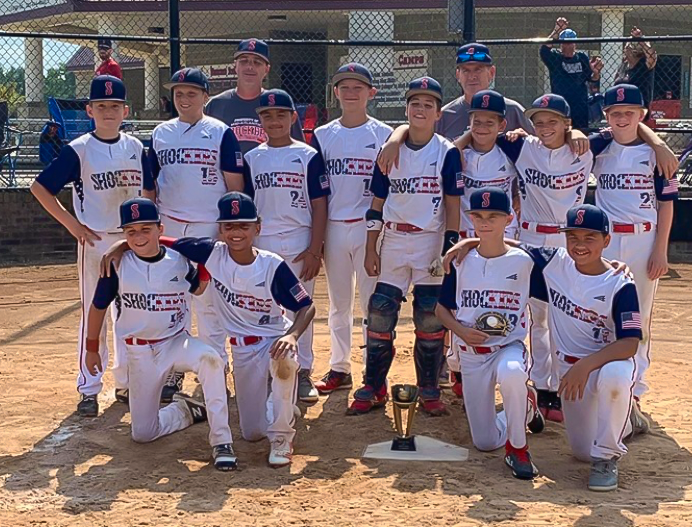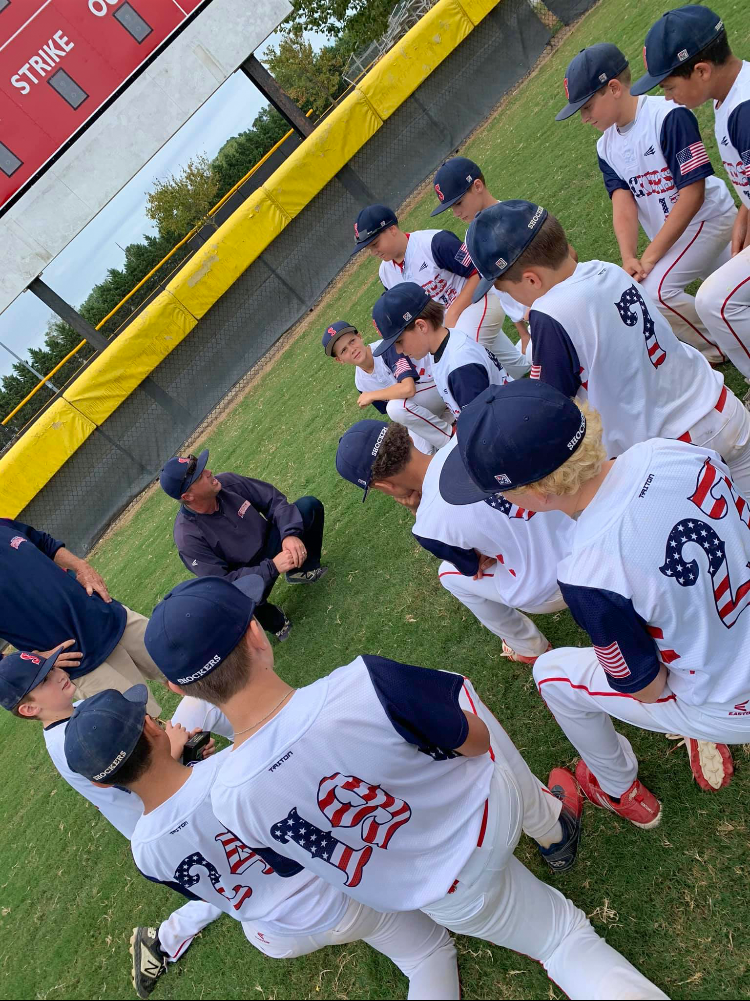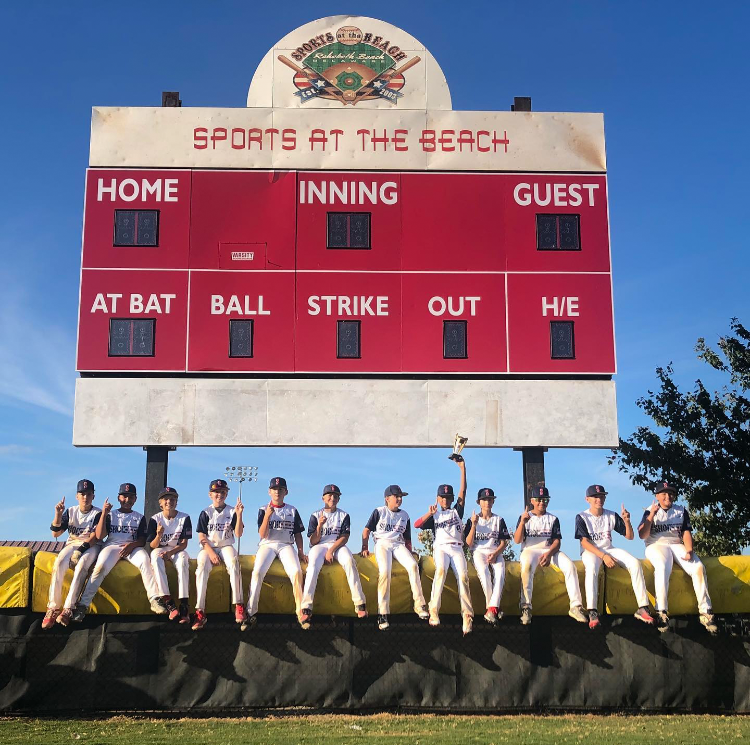Jackie Robinson slides during Spring Training at Dodgertown in Vero Beach, Fla. in 1955. Courtesy of Major League Baseball.
HiCast Sports Network, a leading video streaming platform for youth and amateur sports, will livestream the Presidents' Day Challenge presented by the Cleveland Clinic hosted by the Jackie Robinson Training Complex from Feb. 15-17. Taking place during Black History Month, the Jackie Robinson Training Complex celebrates Jackie Robinson’s enduring legacy. This historic venue inspires the future of baseball and softball by bringing youth athletes, families and fans closer to the game in meaningful ways.
HiCast’s patented technology will stream games from all nine fields at the Jackie Robinson Training Complex, including three fields equipped with AI-powered cameras offering an automated produced feed blending home plate and centerfield views. By livestreaming key events held at the Jackie Robinson Training Complex, such as the recent USA Softball High Performance Program National Selection Event and the upcoming Nike RBI (Reviving Baseball in Inner Cities) Regionals and World Series, HiCast increases visibility for young athletes and contributes to Major League Baseball’s (MLB) ‘PLAY BALL’ initiative connecting young people with baseball and softball and helping close equity gaps in access to the game.
"We’re proud to partner with HiCast Sports Network to make events here at our historic complex accessible to fans worldwide,” said Vice President Rachelle Madrigal who oversees operations for the Jackie Robinson Training Complex for MLB’s Baseball and Softball Development Department. “It’s moving to look back at a black and white photograph of Jackie Robinson’s slide during spring training here in 1955 and to now see young athletes saving and sharing HiCast video highlights of their own memorable moments on our fields. This technology makes it easier for families to support and celebrate youth athletes.”
Participating teams and their locations include Chester Springs, Pa. (Penn Crush 9U); Long Island, N.Y. (Hicksville Hurricanes 9U); Doral, Fla. (Team Blanco 9U, 12U, 14U); Vero Beach, Fla. (Vero Venom 9U, 10U, 11U, 13U); Port St. Lucie, Fla. (Treasure Coast Tide 9U, Naturals Florida 13U, 14U); Palm Beach Gardens, Fla. (South Florida Thunder 10U); Westwood, N.J. (Tri-State Bluejays 10U); Broomall, Pa. (ASBA - Broomall 10U); North Aurora, Ill. (Illinois Savage 10U, 12U); West Chester, Pa. (West Chester Dragons 10U, 11U, 12U, 16U, 18U); Elkhorn, Wis. (Team GTS 11U, 13U, 14U, 16U); Mount Dora, Fla. (Eustis Baseball Academy 11U, CBU Eustis Select Thomas 13U); Jacksonville, Fla. (San Jose Money Ballers 12U); West Pines, Fla. (West Pines Cobras 12U); Vadnais Heights, Minn. (Minnesota Blizzard 12U, 13U, 14U, 16U, 18U); Lithia, Fla. (Dover Bombers 12U); Boca Raton, Fla. (West Boca Panthers Orange 13U); Conshohocken, Pa. (Uncommon Prospects Black 13U); Plantation, Fla. (Canes Premier 13U); Boucherville, Canada (De Mortagne Black 13U, De Mortagne Red 13U, De Mortagne 14U); Melbourne, Fla. (Five Star Space Coast 12U, 14U); Coatesville, Pa. (Mid-Atlantic Misfits 16U); Blaine, Minn. (Complete Athlete Baseball 16U); Warminster, Pa. (ASBA Futures 2027 Gold 16U); Mahwah, N.J. (NJ Dbacks 16U); Westchester County, N.Y. (Elmsford Bulldogs 15U); and Lewistown, Pa. (Mifflin County Baseball 18U).
The tournament will be available to watch live or anytime on-demand through HiCast Sports Network on desktop or mobile devices. Games remain accessible for 90 days, allowing athletes and families to replay, save and share their favorite Moments That Matter. To sign up and review subscription options, visit hicastsports.com/jackierobinsoncomplex. Visit the HiCast Sports Network Vimeo channel to watch highlights, including Lily Kwis' two-run RBI triple that was captured by her father and HiCast Sports Network subscriber, Keith Kwis, during the USA Softball High Performance Program National Selection Event on Dec. 13 at the Jackie Robinson Training Complex.
About HiCast Sports Network
HiCast Sports Network is a leading live and video-on-demand streaming platform and subscription-based service for amateur and youth sports, utilizing its patented technology to put games and the Moments That Matter™ in the hands of fans everywhere. HiCast partners with top-tier sports venues including the Jackie Robinson Training Complex, Ripken Baseball, and A5 Volleyball Sportsplex to deliver a premium viewing experience to families, coaches, athletes and scouts. HiCast Sports Network users from around the world have watched thousands of youth sports events encompassing more than eight million game minutes in 2024 across more than 250 livestreams in Colorado, Delaware, Florida, Georgia, Iowa, Kansas, Kentucky, Louisiana, Maryland, Michigan, Missouri, New York, Ohio, South Carolina, Tennessee, and Virginia.
Image courtesy of Jackie Robinson Training Complex




